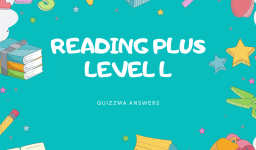I Am Very Real By Kurt Vonnegut.
- 10th Grade
Text-Dependent Answers
| Question | Answer |
|---|---|
| PART A: Which of the following statements expresses a central idea of the text? | Burning books goes against the freedoms that Americans hold dear. |
| PART B: Which of the following quotes best supports the answer to Part A? | “books are sacred to free men for very good reasons, and that wars have been fought against nations which hate books and burn them. If you are an American, you must allow all ideas to circulate freely” (Paragraph 8) |
| PART A: What does the word “exploit” most closely mean as it is used in paragraph 4? | to benefit from |
| PART B: Which phrase from paragraph 4 best supports the answer to Part A? | “crowing about all the books we will sell because of the news” |
| Which statement best describes how the author uses rhetoric in paragraphs 4-5 to advance his argument? | The author explains that he is a man of integrity in order to show why the school’s reactions were excessive and wrong. |
How does the author expand his argument in paragraphs 7-8?
In paragraphs 7-8, the author expands his argument by:
- Highlighting his contributions to society like being a veteran and raising responsible children, suggesting these contradict the image of him as someone harmful to youth.
- Pointing out the hypocrisy of the school board claiming to protect children while resorting to harmful actions like burning books.
- Arguing that exposure to diverse ideas is crucial for young people’s development and that burning books contradicts this principle.
Discussion Answers
What do you think Vonnegut means when he says that he is a “real person”? Why does he work so hard to convey this point? Explain your answer.
Vonnegut likely means he is a “real person” in multiple ways:
- Grounding himself in reality: He emphasizes his tangible experiences, achievements, and contributions to society to counter the accusations of promoting harmful ideas.
- Challenging their perception: He subverts the image they might have of an immoral writer by showcasing his responsible life and background.
- Asserting his humanity: He emphasizes his personal qualities and values to show he’s not just an abstract concept but a person with integrity worthy of respect.
According to Vonnegut, what does being American mean? Do you agree with Vonnegut when he says the burning of books is un-American? Why or why not?
Vonnegut suggests being American means:
- Valuing freedom of expression: He emphasizes the importance of open discourse and exposure to diverse ideas, even if controversial.
- Opposing censorship: He views book burning as an act against American values and freedoms.
- Embracing critical thinking: He argues that sheltering youth from all challenging ideas hinders their ability to think critically and make informed decisions.
In the context of this letter, which is more important: freedom of speech, or the protection of young people from what some may see as harmful ideas? Cite evidence from this text, your own experience, and other literature, art, or history in your answer.
Balancing freedom of speech and protecting young people is complex:
- Arguments for freedom of speech: Exposure to diverse viewpoints fosters critical thinking, prevents indoctrination, and upholds democratic values.
- Arguments for protection: Shielding young people from harmful content is a parental and societal responsibility, and some ideas can be genuinely damaging.
Ultimately, navigating this tension requires careful consideration of context, potential impact, and individual rights.
In the context of this letter, what makes America unique? Cite evidence from this text, your own experience, and other literature, art, or history in your answer.
What makes America unique according to the text and beyond:
- Commitment to free speech and open discourse: This allows for the exchange of ideas, even unpopular ones, which is crucial for progress and individual liberty.
- Diversity of thought and perspective: The presence of various viewpoints enriches society and challenges the status quo.
- Respect for individual rights and freedoms: This includes the freedom to express oneself and access information, even if it’s uncomfortable or challenging.
Remember, these are just some interpretations, and there’s room for your own analysis and perspective based on your understanding of the text and the wider world.
Other CommonLit Answers:
– For Gen Z, TikTok Is The New Search Engine CommonLit Answers
– Sonnet 18 CommonLit Answers
– Puritan Laws And Character CommonLit Answers
– A Poison Tree Commonlit Answers
– Greek Society Commonlit Answers
– The Roaring Twenties Commonlit Answers



